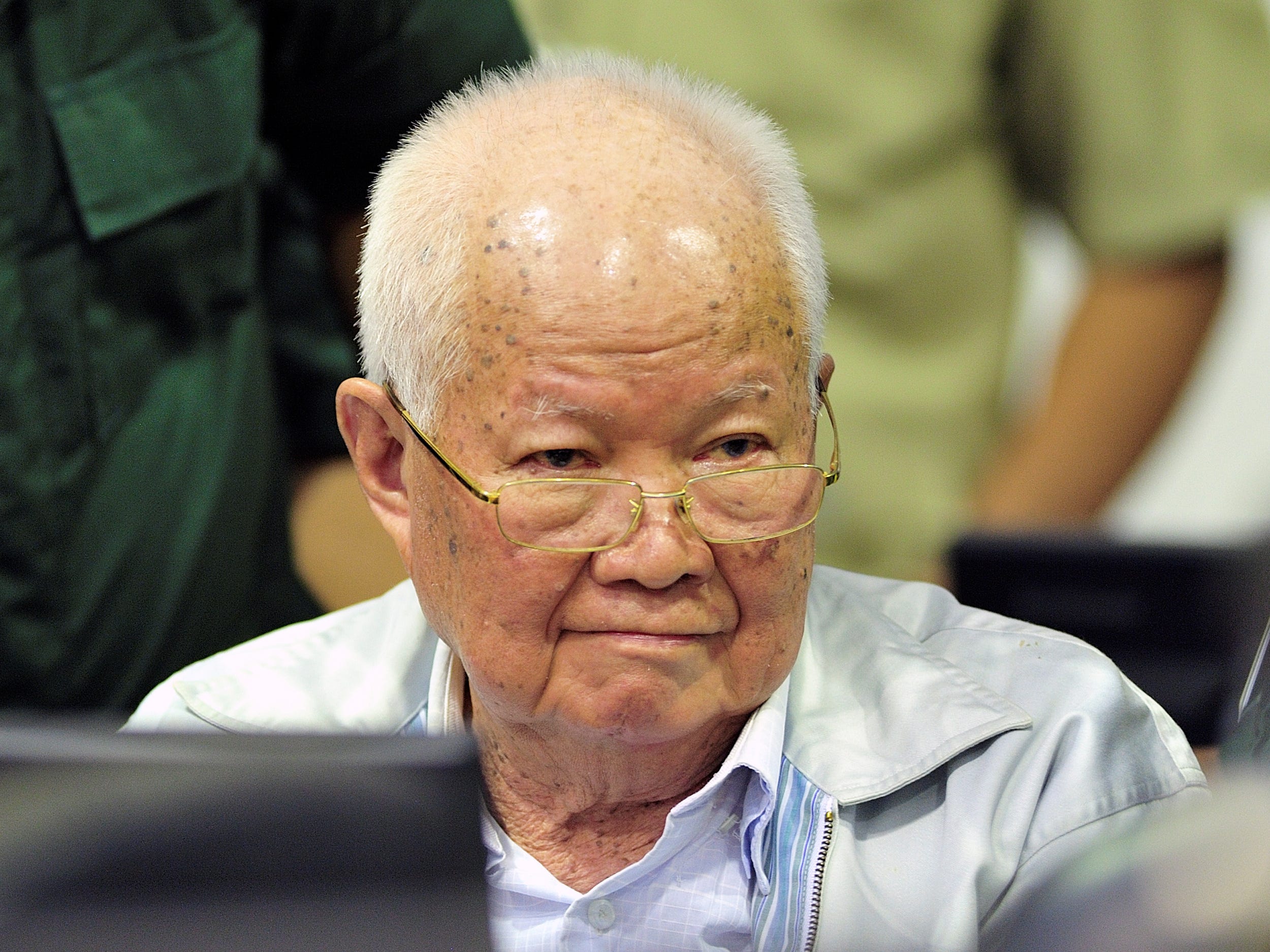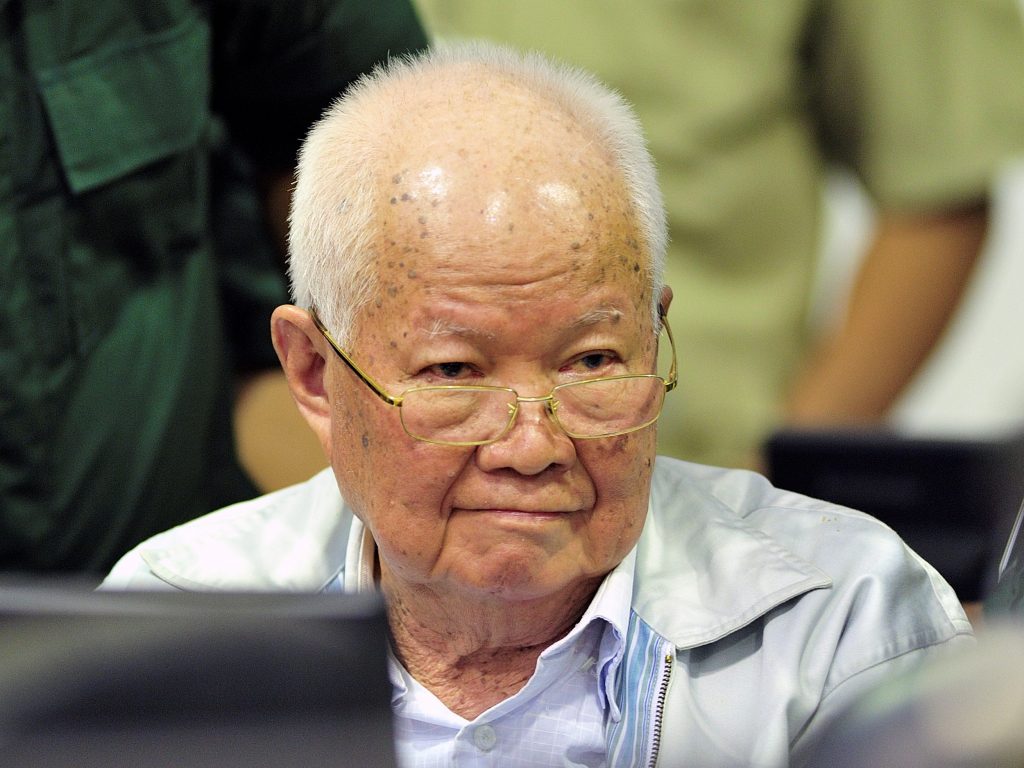
(ECCC)/Handout via REUTERS
- The former head of state for the brutal Khmer Rouge regime plans to appeal against his life sentence for genocide.
- The Khmer Rouge, led by Pol Pot, caused 1.7 million deaths in Cambodia between 1975 and 1979.
- Samphan has regularly rejected the idea that he was involved or directly responsible for the deaths.
- Visit Insider's homepage for more stories.
Khieu Samphan, the former head of state for the Cambodian Khmer Rouge regime, is set to appeal against his life imprisonment sentence for his involvement in the genocide of ethnic Vietnamese some 40 years ago.
According to the Phnom Penh Post, the Supreme Court Chamber of the UN-backed Cambodian tribunal will hear his case next week. A spokesperson for the tribunal told AFP that Samphan is planning to testify.
Communist political group Khmer Rouge and its dictator, Pol Pot, were responsible for the deaths of around 1.7 million people during their rule between 1975 and 1979.
The victims, many from ethnic minorities, died from torture, starvation, disease, or exhaustion in labor camps, while others were slaughtered in mass executions at sites now known as "the Killing Fields."
Samphan, now 90, has denied that the regime directly caused the deaths, saying in a previous trial that the term "genocide" was coined as propaganda by the Vietnamese government.
"The term 'murder,' I categorically reject it," he told the court in 2017, per Reuters.
He was still sentenced to life in prison alongside second-in-command Nuon Chea, the regime's chief ideologist, for genocide in 2018 - the sentence he now plans to contest. Both regime leaders were also jailed for life in 2014 for crimes against humanity.
Chea died in 2019, and Samphan is now the last surviving member of the Khmer Rouge senior leadership. Pol Pot, also known as 'Brother Number 1," died in 1998 before a trial could be carried out.
The remaining leaders faced so many allegations during their trials that the court decided in 2011 to divide the trials into smaller hearings out of fear that Khmer Rouge leadership would die before being put to trial.
